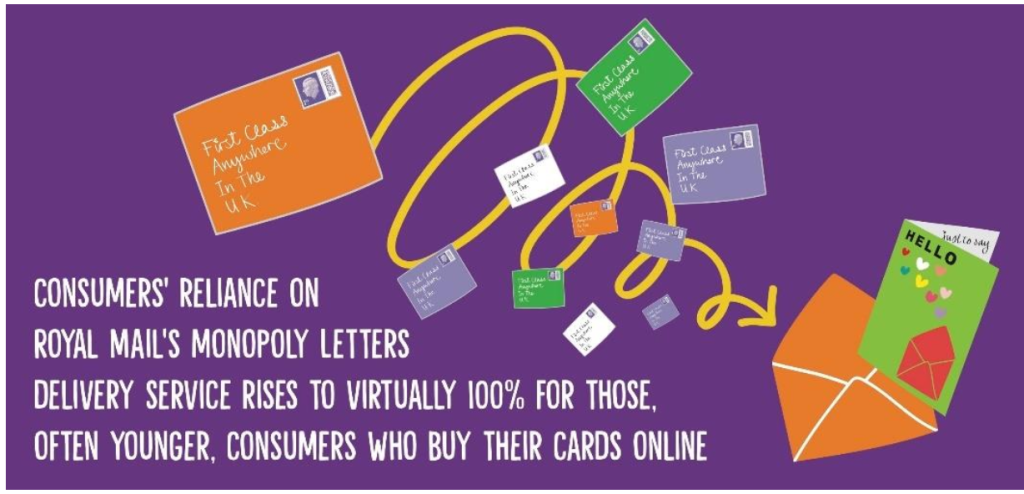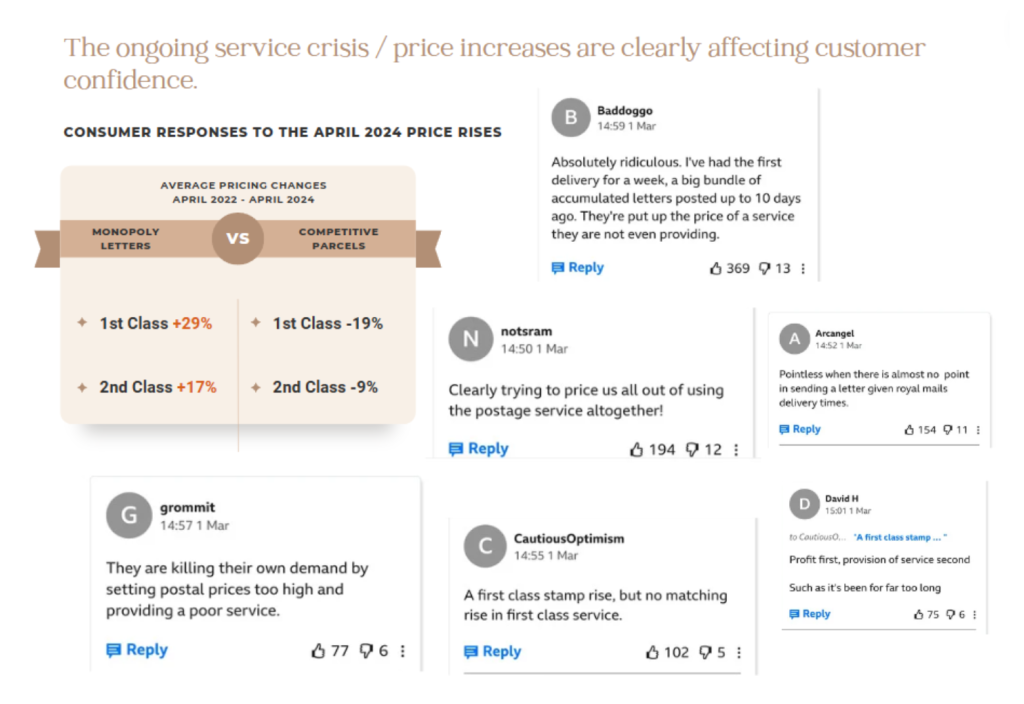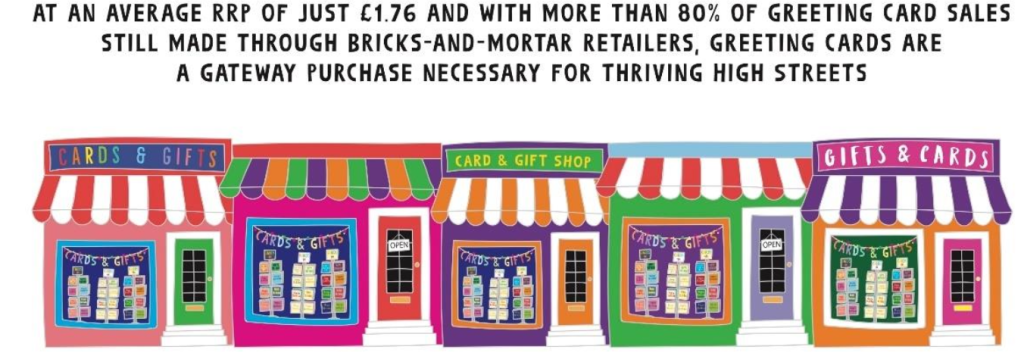The Greeting Card Association (GCA) has submitted its response to Ofcom’s proposals to water down the postal delivery giant’s universal service obligations.
Following Ofcom’s release of its The Future Of The Postal Service review which moots trimming the USO letter delivery mandate to five or even down to just three days a week, the GCA ceo Amanda Fergusson and the association council – notably David Falkner of Cardology and David Byk of Ling and GBCC – have poured much time and resources into compiling a detailed 25-page analysis of the review.

Expressing the view that the case that the USO is a burden remains unproven, the submission states: “We believe the proposal of simultaneous significant price rises and service reductions will just unnecessarily accelerate British postal decline, trapping the country in a doom-spiral of increasingly-frequent requests for further bailouts or reviews.”
The trade association’s submission was made on the same day the latest price increase kicked in for first and second-class stamps, both up by 10p to £1.35 and 85p respectively, which the GCA estimates will give Royal Mail £100m in extra income providing there is no loss in the current 7billion letter volume – using Ofcom’s figures from the review, 17% of that volume is within the USO.

Amanda told StationeryNews’ sister publication, PG Buzz: “This is an important time for our industry’s voice to be heard – with 50% of cards posted, and 42% of consumers saying they only use Royal Mail to send cards, we need to ensure the interests of our industry and the small businesses, high streets and consumers that our industry serves is heard.
“The GCA has worked closely with members to understand the impact of these proposals, and also to review analysis available both in the UK and other parts of the world on letters postal usage. Along with other stakeholders, we are concerned the regulator’s proposals are not taking into consideration the impact of these changes on UK consumers and small businesses.
“We understand Royal Mail is a business and needs to make a profit. However, in our response to Ofcom, we ask for broader consultation and analysis of consumers and small businesses’ needs, along with more transparency around the cost of providing the Letters delivery service before any decisions are made.
“We are pleased to hear from the postal minister that the government also recognises postal services ‘remain a vital part of the UK’s communications fabric for consumers, and businesses’ and also that the government understand the importance of Saturday deliveries.
“We are keen to continue to work closely with Royal Mail to look at ways the postal service can innovate to ensure that consumers and small businesses needs are represented as the future of our postal service is reviewed.”
The GCA’s submission, which can be read in full here, starts under an executive summary heading of “Couldn’t this all be so much simpler?” and raises fundamental questions about Ofcom’s analysis, pointing out: “This matters to us because we’ve got significant skin in the game – the proposed changes could wipe hundreds of millions of pounds worth of value from our otherwise stable industry and small businesses on High Streets and in back bedrooms up and down the country – but also because it’s not fair to ask the British public to accept weaker service or the cost of subsidies, when far simpler solutions would fix things faster.”

It states there remains no underpinned service recovery plans or evidence of meaningful progress to restore the Royal Mail service to legally-required levels, and points out there is no historical precedence of a declining industry recovering by radically increasing prices while concurrently dramatically reducing service, which leads to the fear that Ofcom’s current proposals will only accelerate existing postal decline.
The association concludes that immediate service stabilisation and restoration of public confidence in postal service levels is the pressing priority. Discussion of a hypothetical future market is useful, but that market may not exist if current trends are allowed to continue.
It adds any future stamp price rises should be conditional on Royal Mail delivering its required USO service levels and the postal service should not be given the freedom to set pricing for monopoly products without transparent econometric or price elasticity modelling and meaningful consultation with consumer advocates and trade associations ahead of future pricing changes.

























